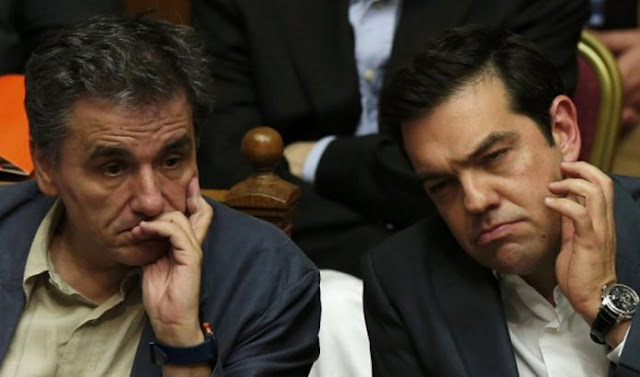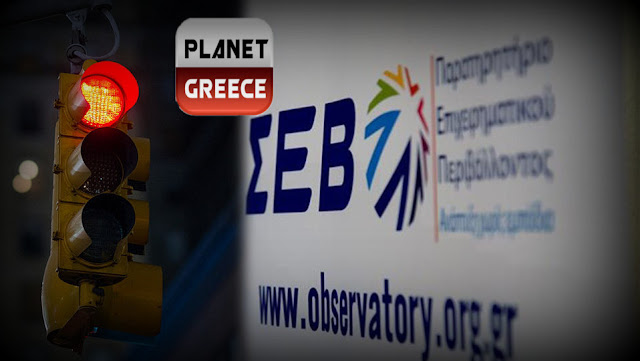Στις 15 Φεβρουαρίου 2008 ο Θεόδωρος Πάγκαλος συναντά τον αμερικανό πρέσβη στην Αθήνα. Ο σημερινός Αντιπρόεδρος της κυβέρνησης μιλά «αιχμηρά» και ανοιχτά στον πρέσβη Σπέκχαρντ για το θέμα των Σκοπίων λέγοντας ότι οι...
Δείτε το απόρρητο έγγραφο
Μακεδόνες θα έπρεπε να χρησιμοποιούν όποιο όνομα θέλουν, ενώ συμπληρώνει αντίθετα με την τότε πολιτική του ΠΑΣΟΚ, ότι τα ιδιωτικά Πανεπιστήμια πρέπει να αναγνωριστούν.
ID : 141568
RefID : 08ATHENS213
Date :
Origin :
15/2/2008 8:53:00 πμ
Classification :
Embassy Athens
CONFIDENTIAL
Header :
VZCZCXYZ0008
OO RUEHWEB
DE RUEHTH #0213 0460853
ZNY CCCCC ZZH
O 150853Z FEB 08
FM AMEMBASSY ATHENS
TO RUEHC/SECSTATE WASHDC IMMEDIATE 1212
INFO RUEHZG/NATO EU COLLECTIVE PRIORITY
RUEHSQ/AMEMBASSY SKOPJE PRIORITY 1148
C O N F I D E N T I A L ATHENS 000213
SIPDIS
SIPDIS
E.O. 12958: DECL: 02/14/2018
TAGS: PGOV, PREL, GR
SUBJECT: CONTRARIAN FORMER FM PANGALOS ON MACEDONIA,
EDUCATION REFORM, PASOK POLITICS
Classified By: AMBASSADOR DANIEL SPECKHARD. REASONS 1.4 (B) AND (D).
1. (C) In a cordial introductory meeting wit Ambassador,
former PASOK Foreign Minister (196-1999) Theodoros Pangalos
-- known during his tenure at the MFA for a sharp tongue and
undiplomatic approach -- said he thought the name issue
between Greece and Macedonia was "ridiculous" and a "disaster
from the beginning." Now that the Republic of Macedonia had
been created, he argued, the Macedonians should be allowed to
use whatever name they wished. Indeed, Greece should be
honored by Macedonia wanting to use the name. As for Greek
fears of irredentism, these too were "ridiculous" and stemmed
from the Greek right´s memories of the civil war and fears of
communist forces coming into Greece from the Slavic
1/3
communist forces coming into Greece from the Slavic
countries. As for the way out of the current impasse,
Pangalos said the U.S. should not worry about Greece blaming
the U.S. for not solving the problem (though he offered no
reason to back up the assertion). He said he thought the
Nimetz proposal was a reasonable approach and noted that he
had told FM Bakoyannis that PASOK would not "exploit the
issue." PASOK would criticize the government for its
handling but would not manipulate the substance of the issue
to Greece´s detriment.
2. (C) On education reform, Pangalos took a similarly
maverick view. In contrast to his party´s opposition to the
ND government´s efforts to change Greek law to allow private
higher educational institutions, Pangalos said everyone knew
the current system of public universities in Greece was
"b.s." and that private institutions should be recognized.
He noted that even his leftist professor second wife (he has
been married three times and said his personal life was a
"disaster") refused to send their son to a Greek university,
opting instead to send the boy to the UK. He said Greece was
number three in the world (after India and China) in terms of
the number of students it exported. But the Greek left --
including his own party -- had hitched itself to the policy
of opposing private universities. Particularly guilty was
the Synaspismos party, which had taken a demagogic approach
to the issue and was just inflaming the situation.
3. (C) Finally, Pangalos offered an assessment of the current
political situation in Greece and the PASOK party´s fortunes.
He asked rhetorically why PASOK was doing so poorly even
though, as opposition, its fortunes should be rising as the
government increasingly got into trouble. Pangalos
attributed PASOK´s slide, first, to changing economic
conditions. Since joining the EU, Greece had seen rapid
economic growth, which created and benefited the middle
class, making them wary of changing political leadership. At
the same time, the government -- beginning under PASOK PM
Simitis -- had to limit deficit spending in line with EU
rules. This hurt pensioners, new graduates, and others on
the lower end of the economic ladder who were a natural PASOK
constituency but were angered by what they perceived to be
PASOK´s complicity in cutting government support. PASOK also
suffered from poor leadership and poor leadership decisions.
George Papandreou was honest and direct, but he was a poor
communicator and not a leader. At the same time, PASOK was
doing a bad job in pitching itself to voters, who perceived
PASOK and ND as the same. From that perspective, Pangalos
argued, Greek voters saw little reason to bother switching
governments.
4. (C) COMMENT: Pangalos avoided the sharp language that
2/3
4. (C) COMMENT: Pangalos avoided the sharp language that
characterized his statements as FM, but he was not shy in
taking positions at variance with his party and, indeed, most
of the Greek political establishment. Our conversations with
Greeks indicate that a very small percentage would agree with
Pangalos on the Macedonia name issue. The overwhelmingly
more common position is one of opposition to compromise. And
Pangalos is unlikely to voice in public the opinions he
voiced with us.
SPECKHARD
;2008-02-15 08:53
Tags : PGOV, PREL, GR
3/3
(ΣΚΑΪ,ΚΑΘΗΜΕΡΙΝΗ)
 Τράβηξε το αυτί του Τσίπρα η Μέρκελ κι εκείνος... χαχάνιζε! [εικόνες]
Τράβηξε το αυτί του Τσίπρα η Μέρκελ κι εκείνος... χαχάνιζε! [εικόνες] MNI: E.E. και δανειστές θα είχαν αποδεχθεί τα μέτρα Τσίπρα, εάν είχαν ενημερωθεί
MNI: E.E. και δανειστές θα είχαν αποδεχθεί τα μέτρα Τσίπρα, εάν είχαν ενημερωθεί Ο ΣΕΒ "καρφώνει" Τσίπρα για τον μποναμά - πείνας στους συνταξιούχους
Ο ΣΕΒ "καρφώνει" Τσίπρα για τον μποναμά - πείνας στους συνταξιούχους ΑΠΟΚΛΕΙΣΤΙΚΟ: Έτοιμοι για GREXIT! Επέστρεψε εκτάκτως ο Σαμαράς στην Ελλάδα!
ΑΠΟΚΛΕΙΣΤΙΚΟ: Έτοιμοι για GREXIT! Επέστρεψε εκτάκτως ο Σαμαράς στην Ελλάδα!

Τράβηξε το αυτί του Τσίπρα η Μέρκελ κι εκείνος... χαχάνιζε! [εικόνες]
Γελάκια, γκριμάτσες, αγκαλίτσες και... χορατά, από...ΔΕΙΤΕ ΕΔΩ

E.E. και δανειστές θα είχαν αποδεχθεί τα μέτρα Τσίπρα, εάν είχαν ενημερωθεί
«Βιαστική» και «ανακριβή» χαρακτηρίζουν πηγές της...ΔΕΙΤΕ ΕΔΩ

Ο ΣΕΒ "καρφώνει" Τσίπρα για τον μποναμά - πείνας στους συνταξιούχους
Κίνηση «υψηλού πολιτικού ρίσκου, που ξαναφέ...ΔΕΙΤΕ ΕΔΩ

ΑΠΟΚΛΕΙΣΤΙΚΟ: Έτοιμοι για GREXIT! Εκτάκτως ο Σαμαράς στην Ελλάδα!
Ο Αντώνης Σαμαράς ήταν χθες στις Βρυξέλλες, προκει...ΔΕΙΤΕ ΕΔΩ
Εγγραφή σε:
Σχόλια ανάρτησης (Atom)



Δεν υπάρχουν σχόλια:
Δημοσίευση σχολίου
Για να αποφευχθούν περιπτώσεις εμφάνισης υβριστικών σχολίων ή άλλων ποινικά κολάσιμων πράξεων, όλα τα σχόλια πριν δημοσιευτούν ελέγχονται.
Παρακαλούμε μην αποστέλετε πληροφορίες άχρηστες προς τη λειτουργία του συγκεκριμένου blog.
Τα μηνύματα είναι προσωπικές απόψεις των αποστολέων και σε καμία περίπτωση δεν εκφράζουν τους δημιουργούς ή διαχειριστές της συγκεκριμένης σελίδας.